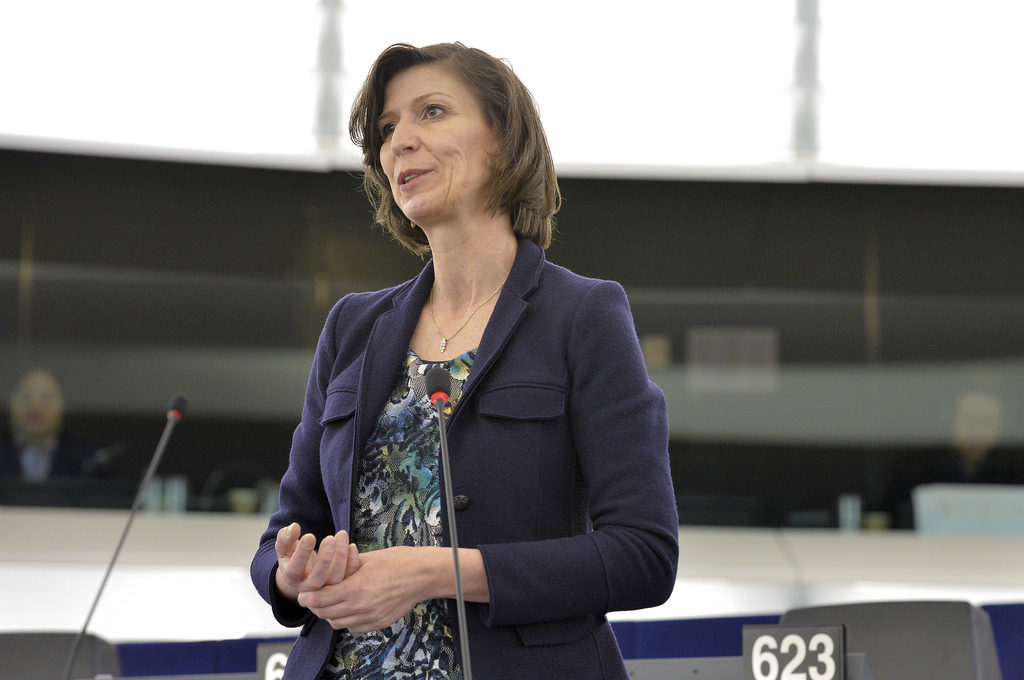Success for the Party for the Animals in the European Parliament: hazardous pesticides to be taken off the market immediately
The European Commission must with immediate effect ensure that hazardous, carcinogenic pesticides will no longer be permitted on the European market and that their use will be prohibited. The Commission was ordered to do so thanks to two proposals of the Party for the Animals in the European Parliament. With this the Party has contributed to a stricter new pesticides act.

Party for the Animals Member of the European Parliament Anja Hazekamp
Research by the food watch dog Foodwatch has recently shown that the European Commission has systematically extended the approval for large numbers of risky pesticides. These extensions were blindly granted without re-evaluating the risks of the substances. This means that European agriculturists and horticulturists are using pesticides which are harmful to people, animals, and the environment.
It was already laid down in the European law in 2015 that five of these pesticides are too dangerous to be used. However, their admission was also extended without being reassessed. Those pesticides are, for example, used for the production of apples, pears, cherries and strawberries, and have been linked to fertility problems and endocrine disruptions with people.
Party for the Animals Member of the European Parliament Anja Hazekamp immediately questioned the European Commission on the result of the Foodwatch research. Last week, she succeeded in enforcing a moratorium on the use of all hazardous pesticides and to stop the automatic extensions of outdated approvals for hazardous pesticides.
Hazekamp: “It is a great victory that the European Parliament finally realises that action should be taken. These substances do not belong in our food. The Commission has the obligation to ensure that only substances are approved which are not harmful to people, animals, and the environment. The European Ombudsman already concluded that the Commission is way too soft, resulting in many substances being on the market while they should not be. This is finally going to end.”
Concerns about animal testing, but no action
Hazekamp has also submitted two proposals concerning the use of animal testing for pesticides. One of those proposals was adopted by the European Parliament: this shows that the parliament is concerned with the fact that the use of animals for testing in respect of hazard identification and risk assessment does not comply with the requirements of the 3 Rs (replacement, reduction and refinement) of the EU Directive 2010/63 concerning animal testing.
However, the parliament’s concerns were obviously not great enough: Hazekamp’s proposal requiring a ban on animal testing in all research and assessment procedures for pesticides was not adopted.